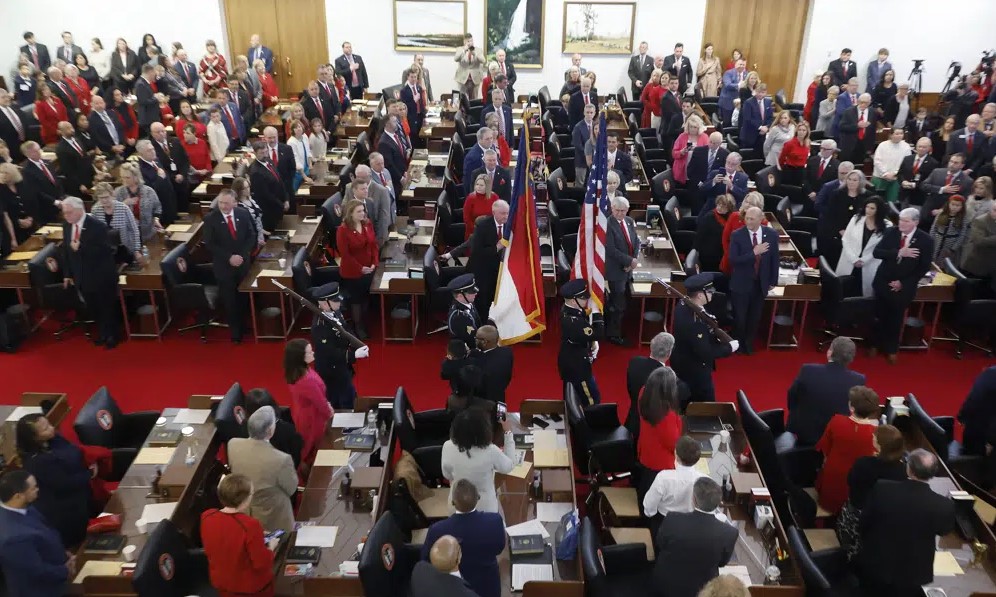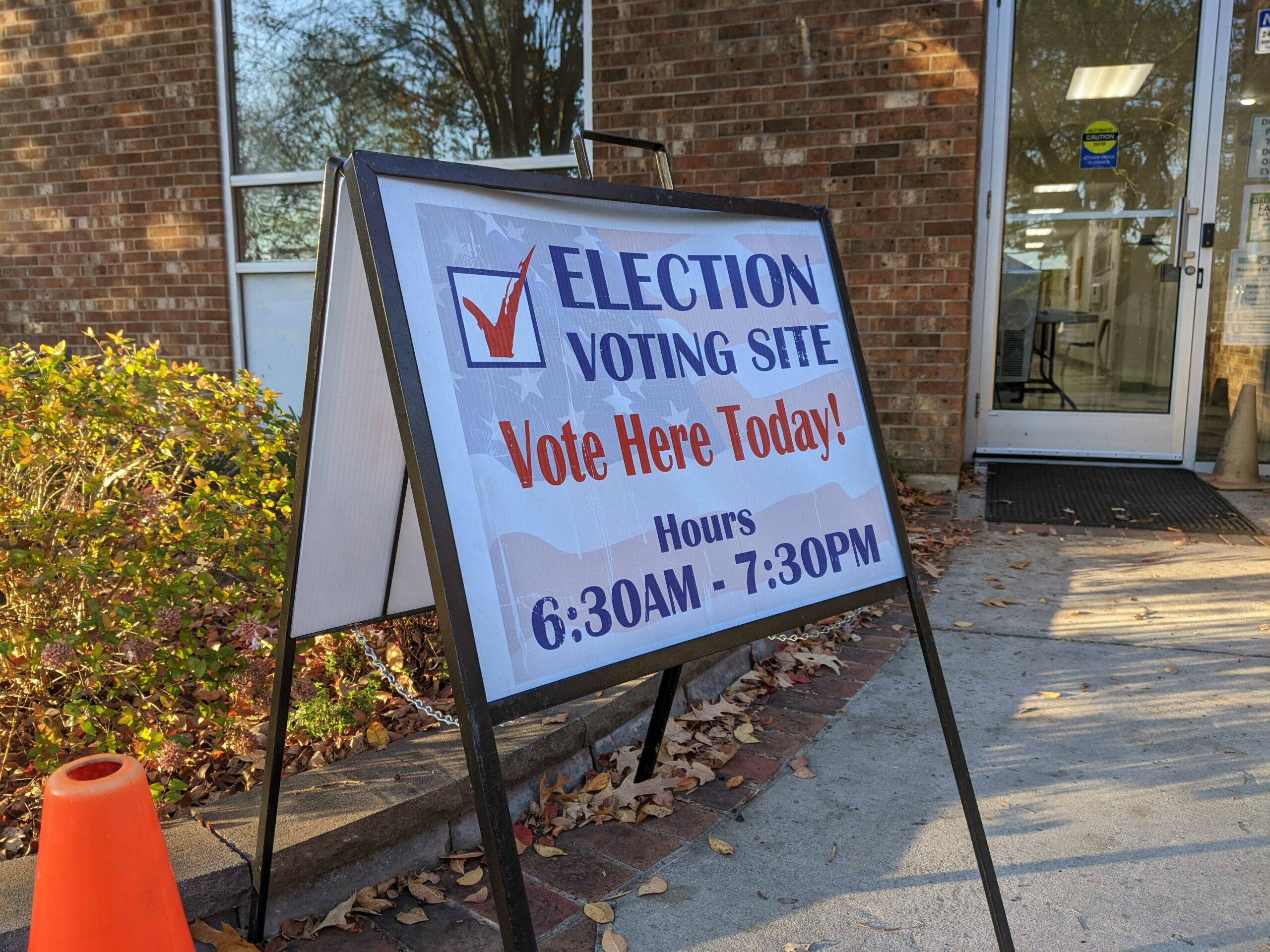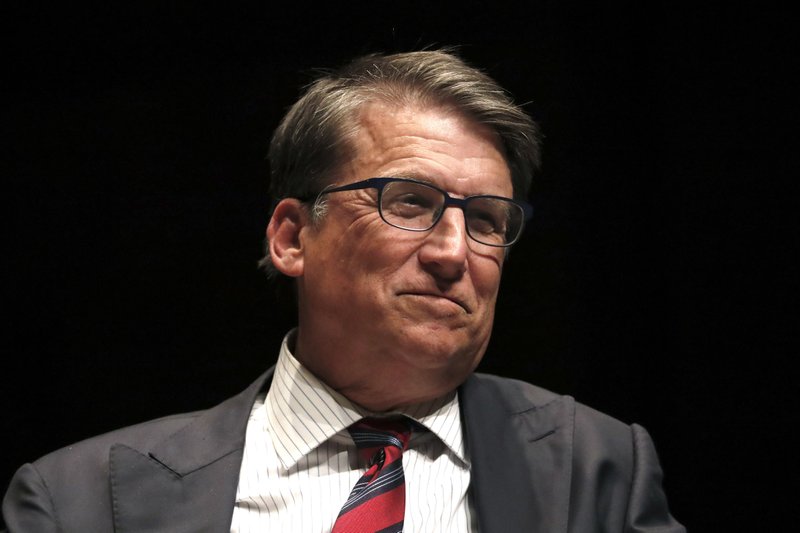North Carolina politics has been in the spotlight over the last week with the passing of House Bill 2.
The North Carolina General Assembly called a special session last Wednesday to pass House Bill 2, which GOP leadership referred to as “common sense” legislation and LGBT advocates called “the worst anti-LGBT legislation in the nation.”
The bill overturned a Charlotte decision to extend the city’s nondiscrimination ordinance to the LGBT community.
Leadership in the legislature quickly said they would consider a special session to repeal the ordinance.
Tom Jensen, Public Policy Polling director, said a survey conducted before the session was called showed that would be an unpopular move among those surveyed.
“Definitely a situation where we found very limited support for the General Assembly, kind of, getting involved in Charlotte’s business,” Jensen said.
The survey showed 25 percent of voters thought the General Assembly should override Charlotte’s anti-discrimination ordinance, in the poll taken before the special session was called. The thought that the ordinance should be left as-is went across party lines with Democrats (58/17), Independents (48/21) and Republicans (45/38).
The legislation passed in a hurried session that began with the bill being made public around 10 o’clock Wednesday morning and was signed into law less than 12 hours later.
Reaction came in quickly from many high-profile businesses in North Carolina opposing the legislation and Jensen provided a fairly straightforward explanation of House Bill 2’s impact in the November election, saying, “It’ll be big.”
In those fall general elections, Jensen said a common theme is continuing among North Carolinians.
“We’re just an incredibly divided state,” Jensen said. “And when it comes to all of these key statewide offices, we’re seeing very tight contests right now.”
The race for Governor in North Carolina is expected to be one of the closest, and most expensive, races in the country in November. Jensen said the incumbent Pat McCrory had a two-point lead over Attorney General Roy Cooper in the race for the governor’s mansion in the first poll since the primary election, which was conducted before the passing of House Bill 2.
Jensen said McCrory does lead Cooper, even though McCrory’s approval rating continues to be low with 40 percent of those surveyed approving of the job McCrory has done and 49 percent disapproving.
“Voters are open to replacing Pat McCrory because they don’t like him very much,” Jensen said. “But they don’t know Cooper well enough yet to know if they think that he’s a better alternative. So, that’s what we’ll figure out over the next seven and a half months.”
Facts And Myths (That McCrory Forgot) About House Bill 2
Jensen said races for Lieutenant Governor, Attorney General and Treasurer in the Tar Heel state are all within three points among the general election candidates, exemplifying the polarization among North Carolinians.
One out-of-state factor that could influence North Carolina elections is who is at the top of the ticket on the November ballot.
Jensen said that if Donald Trump wins the GOP nomination and Republican incumbent Richard Burr supports Trump, then that will have a negative impact on Burr’s electability.
“That makes voters less inclined to vote for him by a 26-point spread,” Jensen said. “Forty-eight percent of voters in the state say that they’re less likely to vote for Burr if he supports Trump, only 22 percent say that they’re more likely to vote for him.”
One thing that is obvious in the results is that the November election will be a close, expensive and influential race at nearly ever level in the Tar Heel state.
See the full results from the PPP survey here.
Related Stories
‹
![]()
PPP: Few North Carolinians Feel Safer Under HB2North Carolina’s House Bill 2, commonly known as HB2, remains unpopular among North Carolinians, according to a newly released survey from Public Policy Polling. The new results show that 43 percent of North Carolinians are opposed to the law, which advocates continue to call among the worst pieces of anti-LGBT legislation in the nation. That […]

'A Pretty Unpopular Move': What Polls Tell Us About NC's Abortion RestrictionsTom Jensen, the director of Public Policy Polling, took some time to chat with 97.9 The Hill’s Aaron Keck on Monday morning. Jensen and Keck discussed the potential 12-week abortion restriction in North Carolina, partisan gerrymandering and looked ahead to the 2024 presidential election. Check out highlights of the interview below, which have been lightly […]

Health Experts, Orange County Officials Share Concern for LGBTQ Wellbeing in Wake of NC BillsThe passage of two bills by the North Carolina General Assembly has drawn condemnation from some elected bodies in Orange County and local pediatric health experts alike for their anti-LGBTQ+ elements. The bills’ sponsors say the elimination of gender-affirming medical care for those under 18, as well as the requirement of educators to alert parents […]

2022 Midterm Suggests Future Turnout Edge for Democrats - With Key ExceptionsElection observers say the 2022 midterm hints at a structural turnout advantage for Democrats - but not necessarily in North Carolina.

Former North Carolina Gov. McCrory Enters U.S. Senate RaceWritten by GARY D. ROBERTSON Former Republican Gov. Pat McCrory on Wednesday announced he’ll run for the U.S. Senate in North Carolina, shaking up the calculus in the expanding field to succeed retiring Sen. Richard Burr with the entrance of a veteran of statewide politics. McCrory, who served as governor for four years through 2016, revealed […]

Transgender Community, Advocates Look to Expiration of NC Law As Chance for Local ChangesNorth Carolina's HB142 had one provision against nondiscriminatory laws expire Tuesday. Members of the LGBTQ community now see it as a chance for change.
![]()
Could North Carolina Turn Blue? Local Election Expert Says YesWith Election Day in full swing, 97.9 The Hill’s Aaron Keck spoke with Tom Jensen, the Director of Public Policy Polling, about what to expect in North Carolina as the final ballots are submitted and election results roll in Tuesday night. In the days leading up to the election, Jensen said he’s seen a pretty […]
![]()
Poll: North Carolina Voters Down on Trump, Tillis as 2020 Race ApproachesAccording to a recent survey from Public Policy Polling, President Donald Trump and Senator Thom Tillis continue to lose support in North Carolina. This is not necessarily a new trend, as past polls from the company have also shown Republican support waning in the state. Trump’s disapproval rate has skyrocketed to 51% after winning the […]
![]()
Poll Shows Widespread Support of LGBTQ Policies in North CarolinaNorth Carolina has seen widespread support for the progress of the LGBTQ community. A poll from Public Policy Polling conducted in June, which was declared Pride Month by Governor Roy Cooper, shows that 67 percent of voters in North Carolina support legislation that protect the rights of LGBTQ people. Director of Public Policy Polling Tom […]
![]()
Public Support for Death Penalty Waning in North CarolinaA new poll from Public Policy Polling has found that a majority of North Carolinians believe the death penalty should be replaced with alternative punishments. Voters question the fairness of the death penalty on several fronts, including racial bias, judicial error and mental health of the accused at the time of the crime. Director of […]
›







Comments on Chapelboro are moderated according to our Community Guidelines